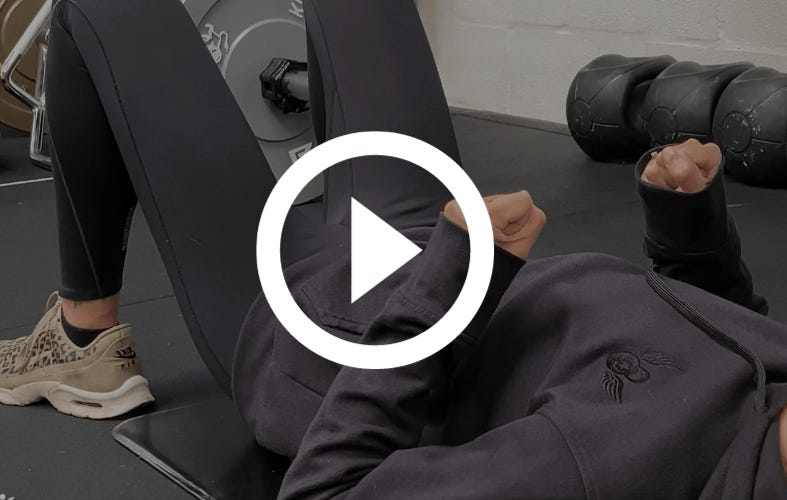
Share this page with friends
Which illnesses can lead to incontinence?
A lot of people will tell you that incontinence is just a normal part of ageing. This isn’t true. In fact, this way of thinking can be quite damaging. If you think urine leakage is just a normal part of life, you might be less likely to do something about it. Despite a large proportion of people experiencing incontinence or urine leakage being in their older years, age isn’t really the underlying factor here. There are a lot of things that can lead to bladder problems. Giving birth is a big one, but there are a lot of illnesses out there that can contribute to a weak bladder too. In this article, we’ll be taking a look at a few of the most common illnesses and their link to incontinence.
Incontinence is defined as the inability to voluntarily control the retention of urine or faeces in your body. It’s something that affects millions of people, in the UK alone, it’s thought that 1 in 10 people experience some kind of urinary leakage. It’s often considered an embarrassing problem, but times are changing. People talk about their bodies and experiences now. Celebrities are even coming out to talk about their bladder leakage and urinary incontinence.
So anyway, let’s dive in.
1. Diabetes
2. Multiple Sclerosis (MS)
Nerve signal interference: For people experiencing MS, the immune system attacks nerve fibres, causing communication problems between the brain and the bladder. This can result in an overactive bladder, leading to a frequent and sudden urge to urinate, or a bladder that doesn’t empty completely.
Muscle weakness and spasms: One of the big things that leads to incontinence is muscle weakness and spasms, affecting the muscles that control the bladder. This can lead to urge incontinence, where you experience urine leaks due to a sudden, intense urge to urinate.
3. Parkinson's Disease
Bladder control: Parkinson’s disease can cause something called bradykinesia (slowness of movement) and rigidity, which can affect the muscles involved in bladder control. This can result in difficulty getting your flow of pee going, or not emptying it properly.
4. Strokes
A stroke occurs when the blood supply to part of your brain is interrupted or reduced, depriving your brain of oxygen. This can result in the sudden death of brain cells, affecting various bodily functions, including bladder control. It’s imperative that you spot and address a stroke as soon as you can. You might remember that really helpful NHS TV ad from a while back, where they introduced the acronym FAST to identify if someone is having a stroke.
Drawing from the NHS website, they explain FAST as:
Face – the face may have dropped on 1 side, the person may not be able to smile, or their mouth or eye may have drooped.
Arms – the person may not be able to lift both arms and keep them there because of weakness or numbness in 1 arm.
Speech – their speech may be slurred or garbled, or the person may not be able to talk at all despite appearing to be awake; they may also have problems understanding what you're saying to them.
Time – it's time to dial 999 immediately if you notice any of these signs or symptoms.
Brain damage and bladder control: Depending on the area of the brain affected by the stroke, there could be damage to the areas that play a role in controlling bladder function. This can lead to urge incontinence, where there is a sudden, intense need to urinate. But, it can also affect physical movements making it difficult to reach the toilet in time.
5. Prostate problems
This one is just for the male readers. In men, prostate problems are a common cause of bladder weakness. Due to its position in the body, if the prostate is enlarged it may push up against the bladder, urethra or other bladder muscles. The pushing sensation against these muscles can result in increased urination and bladder leaks.
Prostate Cancer: Did you know that 1 in 3 men who have, or had, prostate cancer end up with urine leakage? A lot of people think incontinence only affects women but it’s totally untrue. There are an awful lot of men out there experiencing bladder leaks, many because of prostate cancer.
6. Dementia and Alzheimer’s
Dementia is an umbrella term for a range of illnesses that affect memory, thinking, and social abilities. Alzheimer’s disease is the most common form of dementia, characterised by the progressive degeneration of brain cells, leading to a decline in cognitive functions and massively impacting daily life.
As dementia progresses, people may experience memory loss, confusion, and difficulty with everyday tasks. This can make managing bodily functions, including bladder and bowel control, difficult.
Not recognising when you need to use the toilet
Everyday functions that we take for granted become more difficult for people experiencing dementia. When your bladder’s full, your brain tells you that you need to use the toilet. For people with dementia, they might not receive this signal. How do you know if you need to use the toilet unless your body is telling you to? This is a really common problem that often leads to incontinence. Not to mention, someone could forget where the toilet is, or even how to use it.
Behavioural changes
It’s common for people experiencing dementia to go through behavioural changes. To an outsider looking in, it can sometimes be hard to understand. You need a degree of empathy and understanding to put yourself in their shoes. As their brain changes, they can develop irrational fears, agitation or complete rejection of help from others. All of these can result in irregular toilet habits and increase the risk of bladder leaks.
General tips for managing incontinence
Nobody chooses to be incontinent. But, if you’re experiencing leaks and want a bit of help to manage things, there are some things you can try. Be sure to contact your GP if you’re experiencing any of the above illnesses and need a strategy to help manage your incontinence. We’re going to recommend a few things below, but, always contact a GP first, just to be sure.
Pelvic Floor Exercises: Strengthening the pelvic floor muscles through exercises. These exercises are beneficial for both men and women and can be done in total secrecy. The most ability-friendly is the Kegel. What is a Kegel? I hear you say. It’s not just a funny word, it’s a really beneficial exercise that you can perform anytime, anywhere, in total secrecy.
How to perform a kegel:
- Empty your bladder before starting
- Imagine you’re urinating and you suddenly need to stop mid-stream (alternatively, imagine you are trying to stop passing wind)
- You should feel a contraction inside your body in the pelvic area
- Hold the contraction for 3 to 5 seconds, then release
- Wait 3 to 5 seconds and then repeat the contraction
- You can perform this stood up, sat down, or lay down
If you’re an active and mobile person, you might want to move on to something a little more specialised. We brought in Natalie Small, Personal Trainer, and postpartum specialist to talk through some exercises and their benefits. Grab yourself a cup of tea, sit back, relax, and watch the video below.

Diet and hydration: Avoid bladder irritants like caffeine, alcohol, and spicy foods. Staying hydrated is essential for keeping the bladder healthy. The NHS recommends drinking six to eight glasses daily to avoid dehydration and help prevent bladder weakness. You want healthy pee, which means drinking a normal amount of water. Dehydration can cause concentrated, dark urine. This is what we want to avoid. Concentrated, dehydrated, dark urine can irritate the bladder and make incontinence symptoms much worse.
Use incontinence products: Using incontinence items is a good short-term solution to help you manage your symptoms while you work on getting some bladder strength back. For people with chronic incontinence, wearable incontinence products like pads, pants and nappies, can be a real gamechanger. We stock a huge range of wearable incontinence products, chocked full of market-leading incontinence technologies. We totally understand that incontinence items are a necessity, not a luxury, which is why our prices are seriously low. Our range of incontinence pants, pads and nappies are much, much, cheaper than what you’d find in your local supermarket or pharmacy. So, you can spend your hard-earned money on something enjoyable and live your best life.





